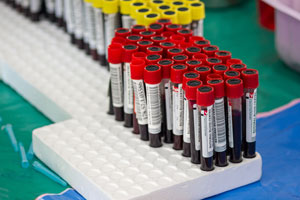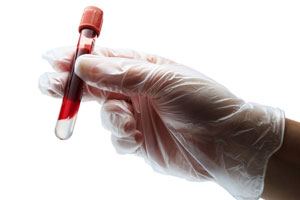Christopher Youngkin, a forensic analyst in Texas, has been accused of perjury and mixing up lab test results. Youngkin is one of the leading forensic analysts for the Department of Public Safety in Garland, Texas. The lab where Youngkin works is responsible for blood alcohol content testing and other tests in seven counties in Texas: Collin, Dallas, Denton, Tarrant, Rockwall, Cooke and Grayson. The thousands of DWI convictions where Youngkin testified at trial could now be in jeopardy.
Court documents show that Youngkin mixed up the blood alcohol tests on suspected DWI cases in 2013. A report that Youngkin sent to the police showed that a woman who had not consumed any alcohol had a blood alcohol level that was almost two times the legal limit. The error was soon discovered, the samples were retested, and no one was harmed. However, local defense attorneys are now questioning how that error has been handled and whether Youngkin has given conflicting testimony on the matter.
The Hearing
According to a partial transcript of a hearing on the matter, defense attorney Troy Burleson questioned Youngkin about a case in Dallas County in which he testified that he had switched vials in 2013. Burleson then questioned Youngkin about conflicting testimony given in Collin County, where he reported that he had never switched vials.
At Youngkin’s hearing, County Court at Law Judge Lance S. Baxter advised Youngkin that he had the right to remain silent and the right to consult an attorney. Youngkin invoked his Fifth Amendment right not to testify.
The Response
DWI Attorney Deandra Grant said that Youngkin has testified multiple times about these trials and given conflicting testimony.
Defense attorney George Milner has said that one of his clients was recently acquitted in a DWI case where Youngkin admitted his error.
Grant and Milner say that they now question the validity of Youngkin’s tests and testimony in other cases.
A spokesperson for the Department of Public Safety has refused to comment on the allegations, saying, “it would not be appropriate for us to discuss at this point. The relevant facts will be argued in a courtroom, which is the appropriate venue for an ongoing case.”
Retired Judge John Creuzot has commented that a finding of inconsistent testimony is serious. He explained, “The DA’s office, if they find out that their witness has committed perjury, they may want to recuse themselves because they have an intimate relationship by having used him as a witness in the past… It may be more appropriate to ask the judge to appoint a special prosecutor.”
Neither the Collin County nor Dallas County district attorney’s offices would respond to the specific allegations against Youngkin. The Dallas County district attorney’s office commented that this is an evolving matter that will continue to monitor.
This controversy comes just weeks after the Harris County toxicologist, Dr. Fessessework Guale, resigned after her academic qualifications were questioned. Dr. Guale had regularly testified in Houston-area DWI cases.





